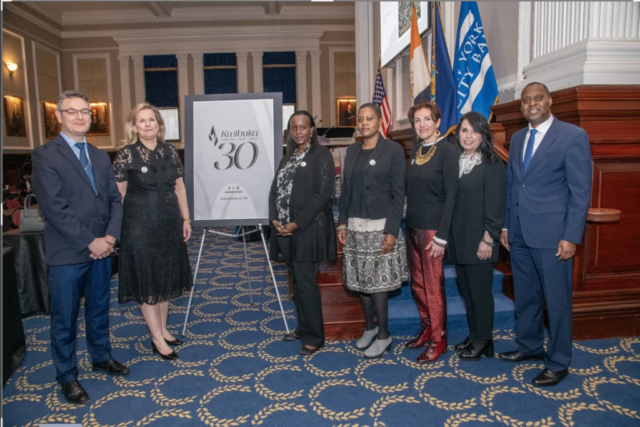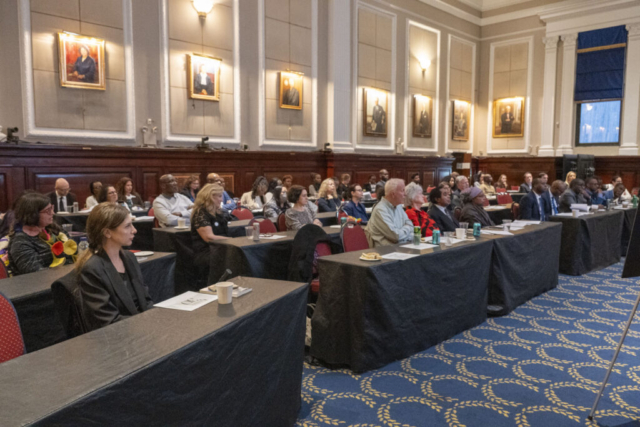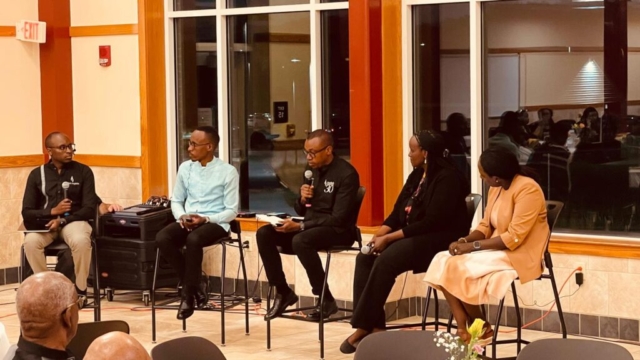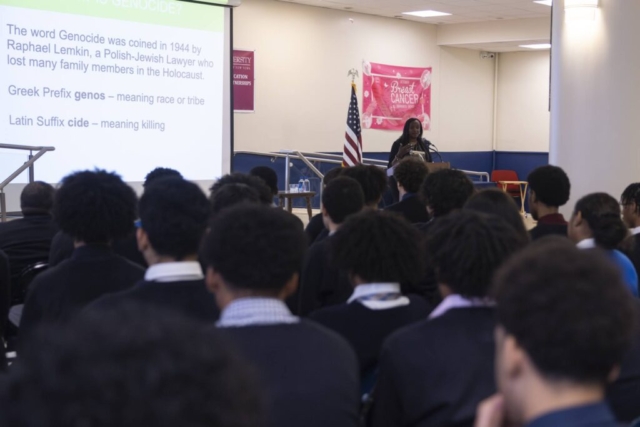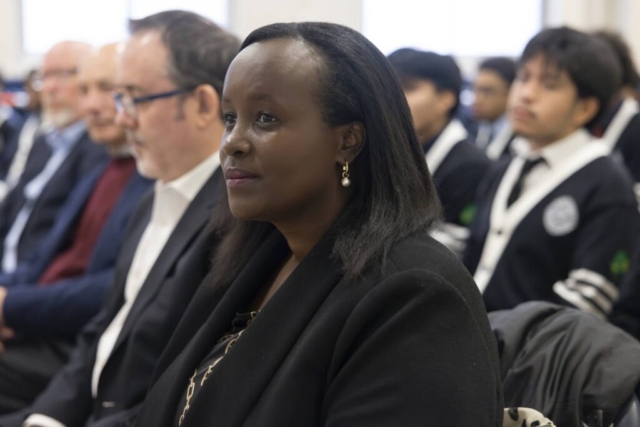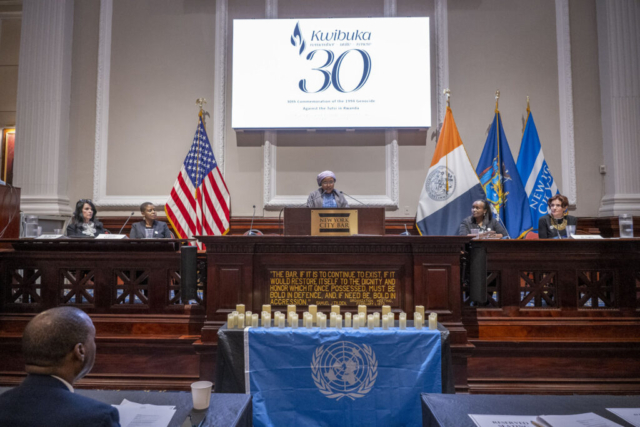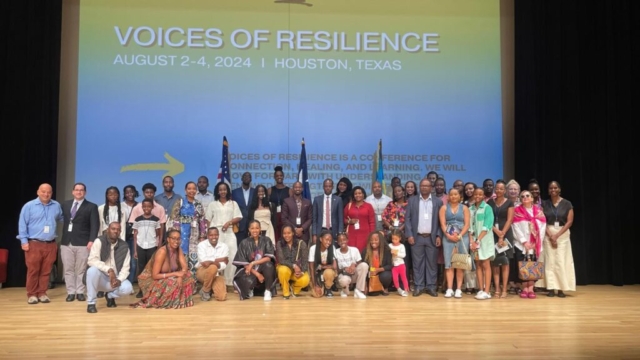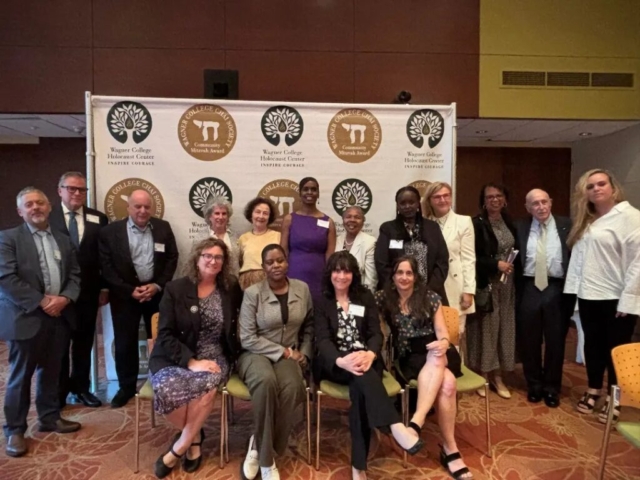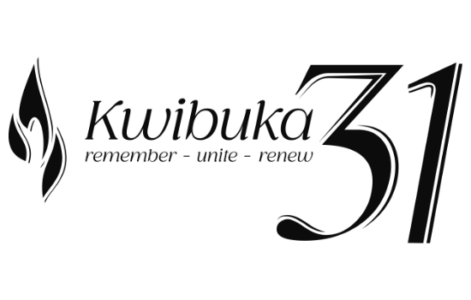Genocide Survivors Foundation’s 2024 Activity Highlights
Posted: December 27, 2024
Written by: Genocide Survivors Foundation
As we review and consider the past twelve months, 2024 has proven an incredibly difficult year for so many us. The constant reports, images, and videos of great human suffering across so many wars and atrocities have left us emotionally overwhelmed and at times feeling physically sick. The extreme levels of hate speech and violence around the world has made the year even more challenging for survivors of genocide and other mass atrocity crimes. Despite the precarious position of the world these days, we have remained true to our mission of participating in efforts to prevent genocide and other forms of mass atrocity crimes and supporting survivors.
This year marked the thirtieth anniversary of the 1994 Genocide against the Tutsi in Rwanda, and we were active in organizing and sponsoring a number of commemoration events. We also participated in a number of such events by sitting on panels and delivering presentations. Additionally, we were fortunate enough to be able to support a number of survivors with their various needs.
Below we are sharing a selection of our activity highlights for 2024:
- Co-organized and co-sponsored the 30th anniversary commemoration for the 1994 Genocide against the Tutsi in Rwanda (Kwibuka 30) at the New York City Bar in partnership with the New York City Bar’s United Nations Committee. The program brought together genocide survivors, mental health experts and genocide prevention experts to discuss sexual violence during the 1994 Genocide against the Tutsi in Rwanda, intergenerational transmission of trauma and mental health challenges facing survivors as well as the role of Governments and civil society in fighting hate and extremism and prevention genocide and other mass atrocity crimes.
- Participated in and was one of the sponsors for the Kwibuka 30 program and reunion of survivors of the 1994 Genocide against the Tutsi in Rwanda which was organized by Ibuka USA. The three day program which took place in Portland, Maine, brought together survivors from all over the world, genocide prevention and human rights activists to discuss the challenges facing survivors in Rwanda, the lessons learned or not learned in the area of genocide prevention in the last 30 years and the way forward in light of the alarming levels of hate and extremist motivated atrocities being committed today.
- Participated in Wagner College Holocaust Center summer conference in Staten Island, New York. The conference was titled, Legal Issues in the Holocaust and Genocide, and brought together legal practitioners, Holocaust and genocide scholars to discuss topics such as rape as a crime against humanity and of genocide, reparative justice, and the challenges surrounding the word genocide itself including its politicization, its abuse and misuse.
- Presented at and was one of the sponsors of the Voices of Resilience conference in Houston, Texas. The conference brought together survivors of various genocides and other atrocity crimes, genocide and human rights activists as well as faith leaders who presented on various topics around the 1994 Genocide against the Tutsi in Rwanda including the various challenges facing survivors such as poverty, lack of sufficient access to mental health services, and genocide denial. The conference also presented awards to some of the leading voices on the 1994 Genocide against the Tutsi and friends of survivors.
- Presented at All Hallows High School in the Bronx, New York as part of the school’s genocide academy program to educate students about the dangers of intolerance and extremism and motivate students to be agents of positive change in their local and global community.
- Paid school tuition and supplies for five children of survivors of the 1994 Genocide against the Tutsi in Rwanda.
- Funded four survivors in Rwanda to start their own small businesses – which enabled them to provide for themselves and their families.
- Provided one survivor with financial support to help address HIV medical needs as a result of rape suffered during the Genocide in Rwanda.
- Helped two survivors in Rwanda with rent which they could no longer pay due to job loss.
- Provided financial support to meet some of the daily needs of two survivors who have been bedridden for 30 years as a result of physical wounds suffered during the 1994 Genocide against the Tutsi in Rwanda.

